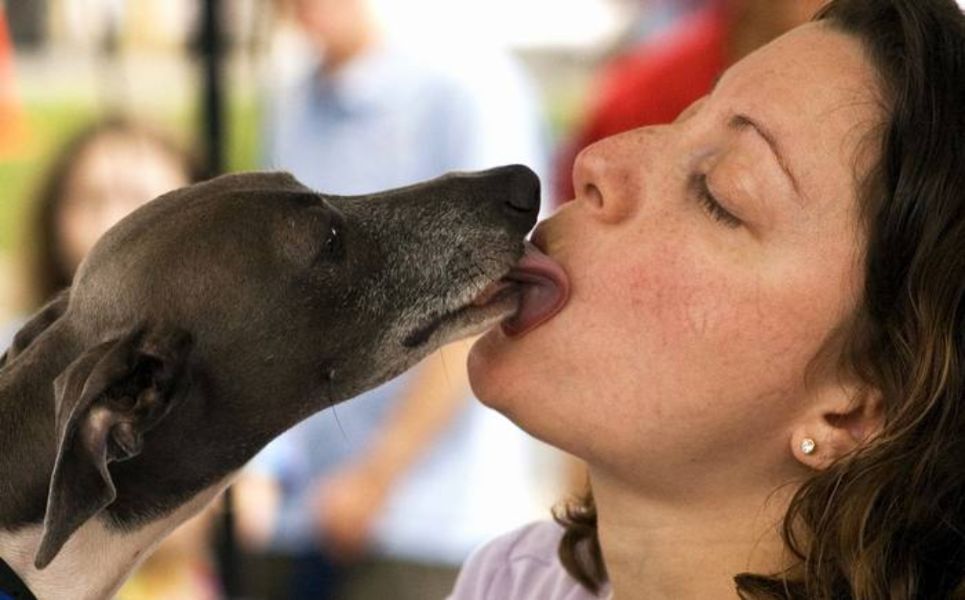New research urges people to stop letting their dogs lick them, and even wash their hands after petting them, as their drool can be a source of antibiotic-resistant superbugs
Source: Infobae
We may want to think twice before letting our dog give us a big slobbery kiss on the face. Pets could be sharing more than just unconditional love with their owners, according to new research from scientists in Europe. They could be transmitting antibiotic-resistant superbugs to human members of their households.
A study by researchers at the University of Lisbon in Portugal and the Royal Veterinary College in London found that pets and humans in the same households often had an antibiotic-resistant strain of E. coli in their systems, according to an abstract of the study carried out by the European Society for Clinical Microbiology and Infectious Diseases. The study will be presented at the society’s next conference later this month.
And while the research work didn’t conclude exactly how the bacteria was transmitted or in what direction, the researchers say it does suggest that we should be hygienic when it comes to contact with pets, including avoiding kissing and washing hands after tie up the poop bags, and even after petting them.
Drug-resistant bacteria can’t be treated with antibiotics, making something that’s usually treatable, like a staph infection, life-threatening. In the United States, drug-resistant bacteria infect more than 2 million people and kill at least 23,000 each year, according to the Centers for Disease Control and Prevention (CDC).
Sian Frosini of the Royal Veterinary College, one of the study’s authors, told BBC5 Live that this specific superbug is not new: it has been found in humans for years and many people probably carry it without any symptoms.
“It’s perfectly natural to have bacteria, and some of them can be resistant. If you’re a healthy person, then it’s fine,” Frosini told the radio show. “The problem comes when you have someone who lives in that household, who maybe has something that makes them more susceptible to infection… They will have a higher risk of getting these resistant bugs.”
But the possibility of sharing a superbug between people and animals is a relatively new discovery. The researchers collected fecal samples from 58 healthy pet owners and their 18 cats and 40 dogs in Portugal. In the UK, 56 healthy people and their 45 dogs were regularly sampled.
They found that 1% of pets (14 dogs and one cat) and 13% of humans carried drug-resistant bacteria, but the number of households in which both humans and animals had the virus was much lower.
“We found four homes where both the owner and the pet at the same time had one of these types of resistant bacteria,” Frosini said. “And we actually found in two of those homes that those bacteria, when we looked at their genetics, were exactly the same between the owner and the dog. So they can see that something is being shared. What cannot be said about the work we had done is in which direction it was going.”
It’s not hard to see why a pet’s lick can be full of germs. When that tongue isn’t giving us a welcoming kiss, our dog or cat is using it to groom itself, even to keep its private parts clean. But Frosini acknowledged that the human subjects may have been the source of the bacteria found in their pets due to poor hygiene.


















